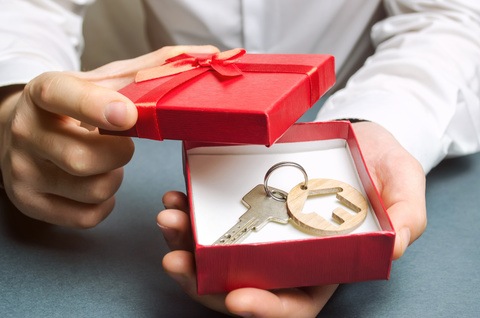More couples are raffling their homes by selling tickets to enter a free draw.
The latest are a couple near Criccieth in Gwynedd, North Wales, who plan to sell 80,000 tickets for £5 each for a chance to win their two-bedroom cottage worth £290,000.
But the Gambling Commission warns that some house raffles are illegal lotteries.
More than 80 have been investigated, and all but 13 were found to be breaking the rules.
The law rules out running a lottery for commercial gain or profit.
“You may have seen some people raffling their home as a prize, but it’s actually a free draw or prize competition, which can be organised for profit,” says the Gambling Commission.
“But be careful, if the free draw or prize competition hasn’t been set up correctly, you could be running an illegal lottery and breaking the law – make sure you seek legal advice.”
The commission explains the outcome of a lottery depends on chance, but prize competitions should involve the entrants using ‘skill, knowledge or judgment’ to win.
Free draws can make a profit for the organiser but must not have a cost for entry.
“If a competition relies on chance it may be considered a lottery and could be illegal,” says the commission.
“If you are organising a free draw or prize competition it is your responsibility to ensure you are compliant with the law. If in doubt, you should seek legal advice.”
Consumer watchdog Which? Believes only two property raffles have resulted in successful wins for an entrant.
One was in 2017 and the most recent was in February, when winner Jemma Nicklin picked up a £545,000 farmhouse near Shrewsbury when her £2 ticket was chosen.
However, another winner was Alison Bellamy, who received a £650,000 farmhouse near Wem, Shropshire in May, when her £2 ticket came up trumps in a raffle.




